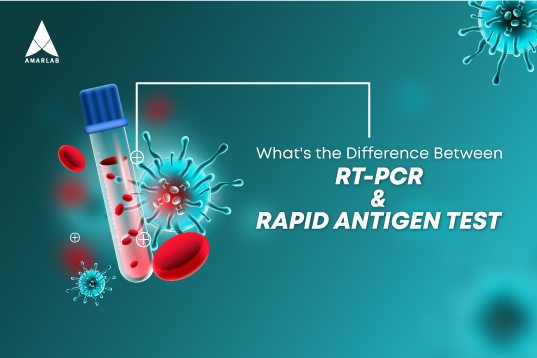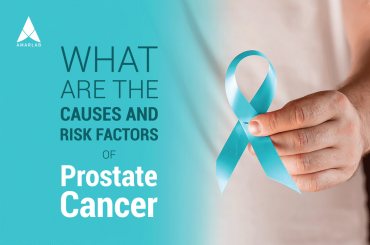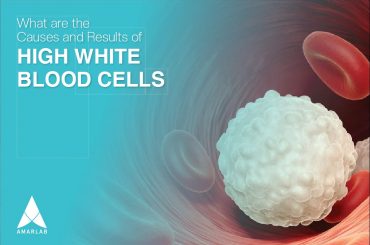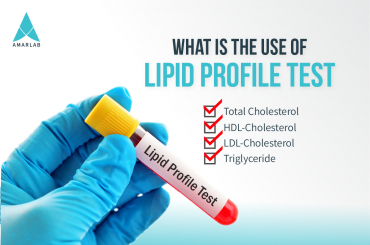The Covid-19 pandemic has been a major setback for the worldwide healthcare sector. The whole world is fighting this deadly disease. Coronavirus is highly contagious. So whenever you have been in close contact with someone suspected of Covid-19, you might go for a test as well.
However, there are a variety of Covid-19 test processes available. So it’s obvious you might become a bit confused about which one to choose. Rapid testing, PCR, antibody tests – these are some of the common terms, being visible on social media and websites during the pandemic. Two of the most common types of tests are RT-PCR and Rapid Antigen test.
For your better understanding, here we are going to describe the difference between rapid antigen and PCR test:
Difference Between RT-PCR and Rapid Antigen Test
RT-PCR Test
Reverse Transcription Polymerase Chain Reaction, widely known as RT-PCR test, traces the coronavirus infection in a person’s body. This is the most ideal test to diagnose an individual who has influenza-like signs and symptoms. If you ever need to show the proof of a Covid-19 test, the PCR test result is considered the gold standard everywhere.
RT-PCR test generally uses Real-Time Reverse Transcriptase (RT)-PCR Diagnostic Panels to detect viral RNA presence. The process provides an accurate result by analyzing the swab sample for reagents. However, if the medical technologist doesn’t collect the sample properly, the result may arrive false negative.
The most positive side of the RT-PCR test is the detection of coronavirus even before the symptoms become visible in a person’s body. That is helpful to prevent the further spread of virus infection.
In case, the result turns out positive, the patients need to adhere to all the necessary Covid-19 safety protocols. Also, checking the oxygen saturation frequently is important to look after the patient’s health.
The drawback of the RT-PCR test lies in taking a significant amount of time to get the result. The test often requires 24-48 hours to know if the tested patient is positive or negative. On top of that, if the workload is massive, it may need even more duration to receive the result.
Rapid Antigen Test
Rapid antigen test follows a quick procedure to detect the coronavirus presence in a person’s body. The turnaround time of this test hardly requires 20 minutes to get the result. In this test, a medical practitioner collects nose and throat secretions via nasal swab. Then, the evaluation of the sample is performed for protein fragments that are specific to the COVID-19 virus.
This test type is a quick solution to a patient who requires an emergency result – within 20-30 minutes. At the same time, they provide much less accurate results than PCR tests do.
So if you ever feel unwell and show the significant symptoms of Covid-19, an RT-PCR test is ideal to help you know your actual health condition.
However, when someone’s infection rate is at its peak, a rapid antigen test can provide the exact result to give prompt medical attention to the patient.
When to Do Covid Test?
If you have signs and symptoms of coronavirus, a healthcare provider may ask you to do the test. Some common Covid-19 symptoms include the following:
- Fever, cold and cough
- Fatigue and weakness
- Shortness of breath
- Sore throat
- Headache
- Loss of taste, in some cases
- A recent history of traveling to a covid infected area
- A recent history of getting in contact with people who are Covid-19 patients
- Severe Acute Respiratory Infection
In some cases, the rapid antigen test comes out negative despite being positive with significant symptoms. So the test further needs to be backed by RT-PCR to completely discard the possibility of infection.
What Does A False Negative or False Positive Mean?
False negative means the health condition when a patient’s test result comes negative via rapid antigen test even if the individual has coronavirus inside the body.
On the other hand, false positive refers to the phenomenon when a patient actually doesn’t have the SARS-Cov-2 virus infection but still, his test result comes positive. If the healthcare provider suspects a false positive or false negative case, he can order you an RT-PCR test again to check out the proper result.
AmarLab offers all kinds of pathology tests from home. Your doctor may order you a test if you have significant signs and symptoms of any disease. In that case, AmarLab lessens your trouble by offering the sample collection test from home. Our medical technologists maintain proper healthcare guidelines while receiving the sample at the patient’s home.
Contact us via AmarLab’s Facebook page, website or you can call our hotline number (09643445566) to order your test, sitting at home.





